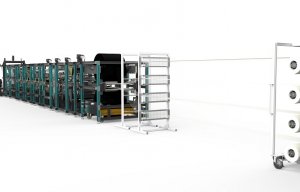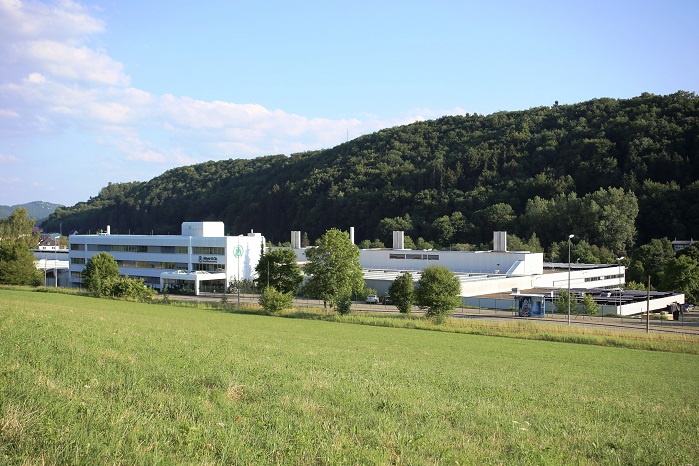
Karl Mayer launches new UD tape line
Mayer & Cie. will be manufacturing braiding machines in addition to circular knitting machines at its Albstadt works from January 2019.
-612x408-boxed.jpg)
18th December 2018
Innovation in Textiles
|
Albstadt
Mayer & Cie. (MCT), a leading manufacturer of circular knitting machines, will be manufacturing braiding machines in addition to circular knitting machines at its Albstadt works from January 2019. Mayer Braidtech, a wholly owned Mayer & Cie. subsidiary, is responsible for sales and service of the new machines, manufactured for the past 40 years by US-based affiliate Mayer Industries.
With Mayer Industries due to cease operations in the medium term, Mayer & Cie. has decided to integrate and take forward this successful line of business at its Albstadt location.

“We see this step as an opportunity to come much closer to our target of sensible diversification,” said Marcus Mayer, managing director at Mayer & Cie. and in charge of technical development. “As a manufacturer of circular knitting machines, we are subject to the vagaries of the textile machinery market, which experience has shown to be liable to strong fluctuations. A sector-unrelated product such as braiding machines will make us a good deal more – and healthily – independent.”
“It was apparent right now, how important diversification is,” Benjamin Mayer, Mayer & Cie.’s co-managing director, noted. He is responsible for sales. After a fast start to 2018, demand for circular knitting machines had tailed off in the second half. That was mainly due to turbulence in international trade policy, he said, in the wake of which uncertainty had spread widely in many important circular knitting markets. Order books for braiding machines, in contrast, are full for months ahead because other laws apply to the hydraulic hoses used in, for example, automobile manufacturing and aviation. That is also true of tubes that drive pumps on the seabed in offshore operations. Braiding machine manufacturing capacities are currently fully booked until the beginning of 2020.
.jpg)
Although circular knitting and braiding machines are only distant relations, there are many synergy effects between the two lines of business. “That was a powerful argument for integration,” said Benjamin Mayer. “Our new investment stays within limits because we can make many braiding machine parts with our existing machine tools and production machinery. Assembly employees can not only assemble circular knitting machines, shipping employees can not only ship circular knitting machines.”
In January 2019, Braidtech is embarking on series production in Albstadt-Tailfingen. Preparations for this milestone took nearly 12 months. Premises needed to be provided, the production line prepared, procurement organised and, not least, the team lined up.
At the moment, it consists of 12 employees who do production-related work. They are currently working on the prototype of their first braiding machine, an MR 15 24 Carrier. Patrick Moser, head of the new Mayer Braidtech business unit, explained that “the model as such is tried and established, but for us here, in new conditions, it is an original.”
The plan for the first half of 2019 provides for the shipment of two double deck systems, each consisting of two MR15 24 Carriers, per month. Preparations are also be made for series production of the second model in a range consisting of six products. Distribution structures are well established. “Our business is project business, so the largest sales markets can vary from year to year, but for some time we have had many orders from Italy and China,” said Moser.

Business intelligence for the fibre, textiles and apparel industries: technologies, innovations, markets, investments, trade policy, sourcing, strategy...
Find out more